Getting a puppy can be very breathtaking and immensely significant! But raising a puppy healthy is more important. The dog is loyal. They will take care of you and love you without selfishness. The dog is an astonishing thing. But it can also be irritating and frustrating if we are honest. Don’t be a lazy guy sitting on the couch, play with your dog, and take him/her to a park. According to BullyAde, there are some tips to protect your dog’s health and make him/her happy!
Here are 5 Best tips for puppies to guide you.
Contents
1. First Few Weeks!
During the first few weeks of a newborn pup, the main activity of the puppy is to promote social skills. Warm and develop the body. In most cases, people observe how the dog takes care of the pup. However, it can be taken care of if a restrained puppy pulled away from the mother, or if the mother’s dog refuses it as a child, or cannot produce enough milk. In this case, Caring for the pup now depends on you.
Proper socialization is a crucial factor in pup success. To become a well-adapted dog, it should expose to as many people, places, experiences, and situations as possible. You have to wait until he collects all the vaccines and brings them to the public or approaches other animals, but play with him and introduce new people, landscapes, sounds, and smells. Thus, you can immediately start talking to puppies and sites.
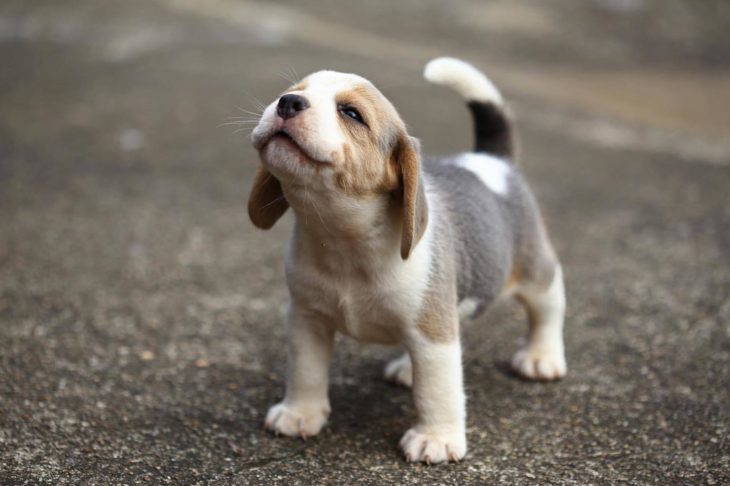
Source: Pikstagram
2. The Health Of Puppies!
The mother’s milk of a dog offers everything it needs during the first four weeks of life. If you look after an orphan, talk to a veterinarian about how to feed the puppies with bottles, as it is easy to hurt them if you feed them poorly. Do not forget to use special preparations for puppies as cow’s milk and other milk substitutes can cause diarrhea.
Chicks need a vial or syringe every few hours for several weeks to feed themselves. In the first week of life, the puppies usually drink at least every two hours of breast milk. With increasing age, the feeding intervals increase.
At his first appointment with the vet, the veterinarian examines the dog for health problems and parasites and recommends a pest control program such as fleas, ticks, and sparrows. Also, a vaccination plan will be prepared and recommended when to take the vaccine to receive it.
Besides, veterinarians can answer questions and concerns about puppy care, feeding, and breeding. A veterinarian or veterinarian can advise you in case of problems with the puppy care, z. For example, when brushing your teeth or cutting your nails or even showing that you are performing the procedure correctly.
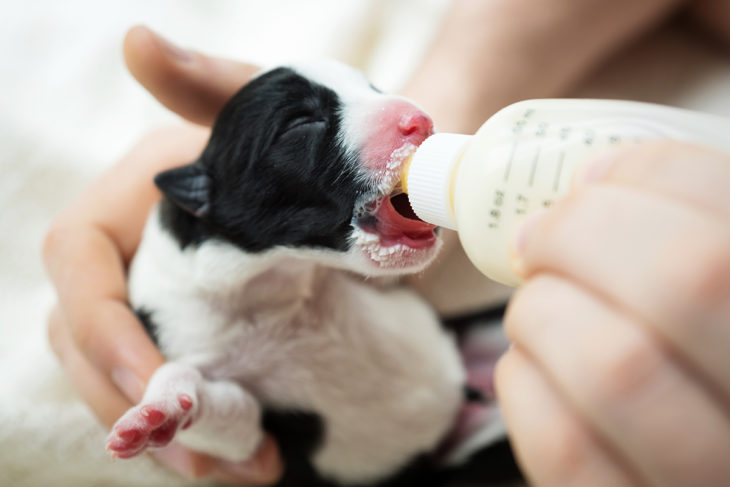
Source: Dierenkliniek Tiel-Drumpt
3. Vaccinations For Puppies!
We all want to protect puppies from infection, but vaccines are just as harmful to dogs and can cause a diversity of health problems, from mild fever to respiratory diseases and cancer. It is essential to know that it also exists in dogs. The puppies vaccinated against parvo, nasal diseases, hepatitis, and parainfluenza. Many veterinarians recommend the first group after eight weeks and recommend one or two patches next week. If you have enough space, you can skip this program and get vaccinated every 16 weeks. So do not start again. Although the puppy looks healthy, most vets recommend taking the first standard vaccine at the age of 6 weeks. Warming and physical examination can begin early. Talk to your veterinary surgeon and make a plan for your puppy.
If your puppy has any symptoms like:
- Not Hungry
- Poor weight gain
- Vomiting
- Diarrhea
- Difficult breathing
- Coughing/wheezing
- Constant crying
- Pale gums
- Swollen eyes or eye discharge
- Nasal discharge
- Inability to pass urine or stool
Then you should immediately call your veterinarian.
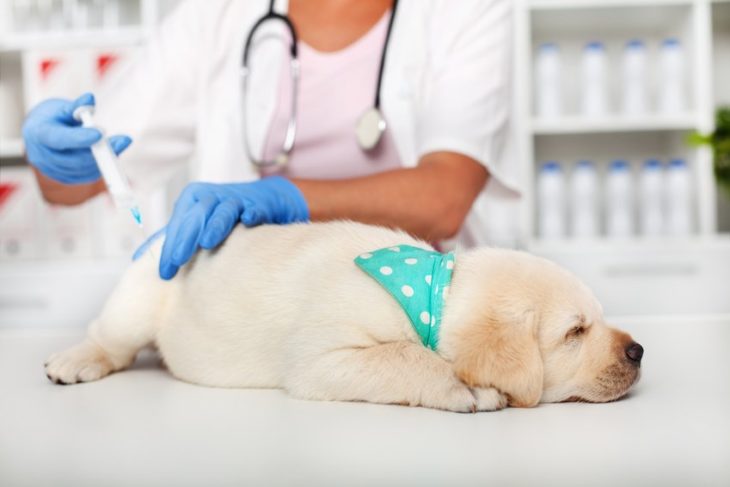
Source: FantastischFrei
4. Exercises!
An adult dog requires a lot of exercises, whereas puppies need a little bit of practice. If a growing young pup does too much sport, the development of the joints may be overloaded and damaged, which leads to early arthritis. A good rule is a ratio of five minutes of exercise per month (up to twice a day) to the full development of the pup or 15 minutes (up to twice a day) at three months of age. , 20 minutes to four months, etc. After growing, they can go out much longer. Puppies and dogs must go out to train in a safe place every day. Otherwise, they may feel frustrated. Time spent in the garden (however relevant) does not replace the exploration of new environments and contact with other dogs. (Make sure your puppy is trained to remind you later.) Never train your puppy on a full stomach, as this may cause swelling.
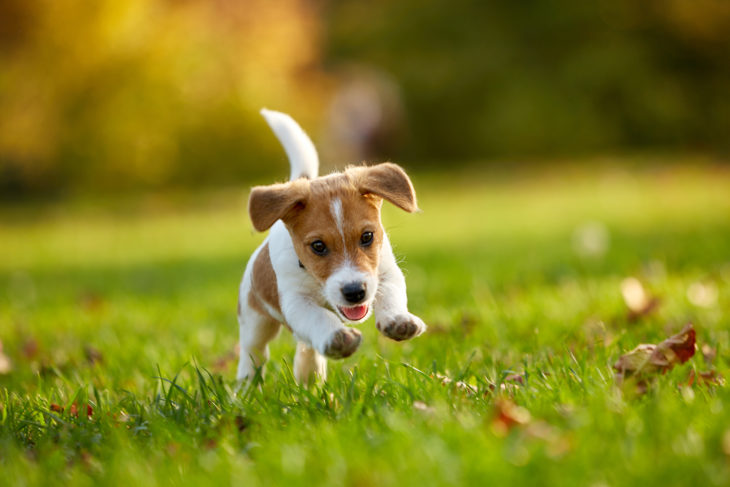
Source: supremepowerhunter
5. Grooming!
Puppy care and grooming require more than just quick cleaning. Some breeds of puppies care more about their hair than others, while others have slightly dripping hair. Cleaning your puppies includes not only cleaning your puppy but also washing it, cleaning your ears, caring for your eyes, cutting your nails, caring for your anal glands, and even brushing your teeth.
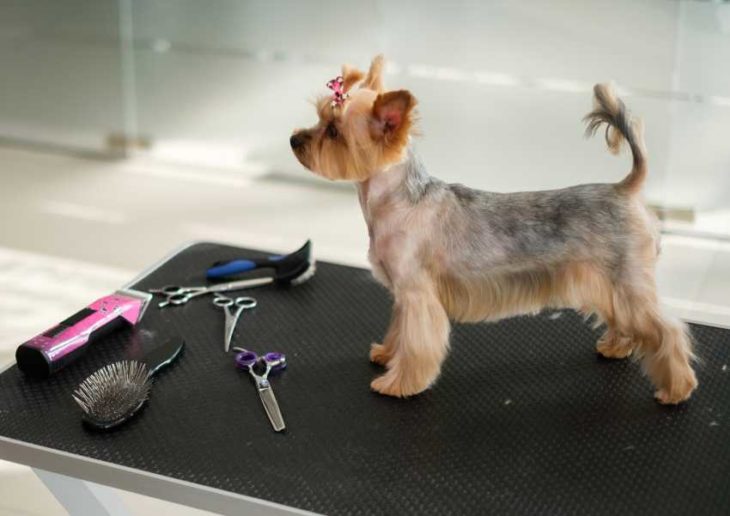
Source: Chien
Items You Must Own!
- With the dog harness, you can walk with a leash in a park with a beautiful sunset, which will make you and your dog happy! If the puppy is young, the harness is better than the collar because the cervical tissue and the muscles are still developing.
- Durable dog leash. If your puppy weighs less than 10 kilos, we recommend one of the most beautiful collars from Dogmount.
- Food for growing puppies. If you do not use menus of the same brand that the puppy has eaten, they may suffer from a stomach ache. Do not forget the bowl of food and the bowl of water.
- Treats, It’s never too early to start their training! Buy a lot of treats because your puppy has a lot to learn.
- A lot of bags, for their poop! And scents because the poop does smell bad.
- Different types of toys that interest your dog. Although these toys seem safe, monitoring puppies are mandatory.
- A comfortable bed is essential for your puppy to have a pleasant nap.
- Pay attention to items such as brushes, nail clippers, shampoos, conditioners, and towels.
